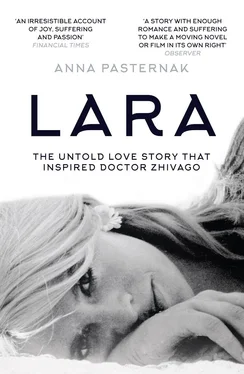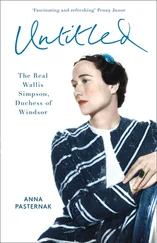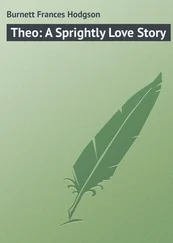Boris Leonidovich started talking, going straight to the point. His cheekbones would twitch, like the triangular shaped cases of wings pressed tight shut, prior to opening. I worshipped him. There was a magnetic quality about him, great strength and celestial otherworldliness. When he spoke, he would jerk his chin, thrusting it up, as if trying to break free of his collar and body. His short nose hooked right from the bridge, then went straight, making one think of the butt of a gun in miniature. The lips of a sphinx. Grey hair, cropped short. But, overshadowing everything else, was the pulsating wave of magnetism that flowed from him.
All through his life women pursued Boris Pasternak. Yet he was no quasi-Don Juanesque character; quite the opposite. He revered women, feeling an innate empathy for them because he saw that for women, as for poets, things could often become complex and entangled in their emotional and sentimental lives. His fateful meeting with Olga at Novy Mir was to become the greatest entanglement, enmeshing his emotional and creative lives.
After exchanging a few words with Zinaida Piddubnaya, he kissed both women’s hands and left. Olga stood there, speechless. It was one of those life-changing moments when she felt the axis of her world tilt. ‘I was simply shaken by the sense of fate when my “god” looked at me with his penetrating eyes. The way he looked at me was so imperious, it was so much a man’s appraising gaze that there could be no mistake about it; here he was, the one person I needed more than any other, the very one who was in actual fact already part of me. A thing like this is stunning, a miracle.’
In Doctor Zhivago the reader is introduced to Lara in chapter two, ‘A Girl from a Different World’. Yury Zhivago’s first impressions of Lara are based on Boris’s early meetings with Olga: ‘“She has no coquetry,” he thought. “She does not wish to please or to look beautiful. She despises all that side of a woman’s life, it’s as though she were punishing herself for being lovely. But this proud hostility to herself makes her more attractive than ever.”’
There was an instant attraction between Boris and Olga, recalled Irina: ‘Boris was sensitive to my mother’s kind of beauty. It was a tired beauty. It wasn’t the beauty of a brilliant victor, it was almost the beauty of a defeated victim. It was the beauty of suffering. When Boris looked into my mother’s beautiful eyes, he could probably see many, many things in them.’
The following day, Pasternak sent Olga a parcel. Five slim volumes of his poems and translations appeared on her desk at the offices at Novy Mir . His tenacious pursuit of her had begun.
Olga had first set eyes on him fourteen years earlier, when, as a student at the Moscow Faculty of Literature, she went to one of Pasternak’s poetry recitals. She was hurrying through the corridor to get to her seat at Herzen House, Moscow, anxious to hear the ‘poet hero’ recite his famous poem ‘Marburg’, which chronicled his first experience of love and rejection. Suddenly, as the bell rang to announce the performance, the nervous black-haired poet rushed past her. He had an electric energy, she thought, which made him seem ‘dishevelled and on fire’. When he finished his recital, the excitable crowd surged forwards to surround him. Olga watched as a handkerchief belonging to him was torn to shreds and even the remaining crumbs of tobacco from his cigarette butts were snatched up by fans as meaningful keepsakes.
Over a decade later, in 1946, when Olga was thirty-four, she was given a ticket to an evening in the library of the Historical Museum where Pasternak was to read from his Shakespeare translations. The Russian writer had been first introduced to the works of the English playwright by his first love, Ida Davidovna Vysotskaya, when he was at Marburg University; Ida was the inspiration for his poem ‘Marburg’. The daughter of a wealthy Moscow merchant, she had been tutored by Boris as a young girl. Ida and her sister visited Cambridge in 1912, where she discovered Shakespeare and English poetry. She spent three days with Boris in Marburg later that summer, presenting her serious-minded friend with an edition of Shakespeare’s plays and indirectly giving birth to a fresh calling.
On 5 November 1939, Pasternak’s translation of Hamlet , which had been commissioned by the great theatre director Vsevolod Meyerhold, had been accepted for staging at the Moscow Art Theatre. This made Pasternak immeasurably proud, not least because the 1930s had been a decade filled with terror and frustration for him. Just as Pasternak had warmed to the task of writing his novel, external circumstances kept him from fulfilling his creative dream. At first, he was hampered by financial need, later by isolation, depression and fear. In 1933 he had written to Maksim Gorky, the godfather of Soviet letters and the founder of the ‘socialist realism’ literary style, that he needed to write short works and publish quickly in order to support his family, which after divorce and remarriage had doubled in size. Already, Pasternak’s attitude to his work was one of risk-taking. Completely against being any sort of mouthpiece for Soviet propaganda, he believed it a moral imperative that he write the truth about the age. He considered it dishonest to be in a privileged position against a backdrop of universal deprivation. Yet publication of his work was regularly delayed by censorship problems.
In August 1929, the whole literary community were affected by an issue that broke out in the press. During the 1920s it was frequent practice among Soviet authors to publish works abroad to secure international copyright (the USSR was not a signatory to any international copyright convention) and to circumvent official censorship. On 26 August the Soviet press accused two authors, Evgenyi Zamyatin and Boris Pilnyak, who published abroad, of major acts of treachery involving anti-Soviet slander. The party- and state-organised campaign of vilification played out in the press lasted several weeks, leaving the writing community in a state of fear and insecurity. In the end Zamyatin emigrated to France and Pilnyak was forced to resign from the Writers’ Union. Pasternak took these cases closely to heart as he shared stylistic features and close personal relations with the two writers. These literary witch hunts coincided with the collectivisation of agriculture. Over the next few years, its violent enactment would devastate the rural economy and destroy the lives of millions.
On 21 September 1932 Pasternak added a note to a collection of poems under preparation at the Federatsiya state publishing house. ‘The Revolution is so unbelievably harsh towards the hundreds of thousands and the millions: yet so gentle towards those with qualifications and those with assured positions.’ Openly voicing the struggles of this oppressive and cruel period of post-revolutionary Russia through his poetry quickly brought counterattacks and noises of displeasure from Soviet authorities. Boris continued fearlessly. As his son Evgeny commented: he ‘had to become the witness to truth and the conscience-bearer for his age’. Perhaps this is because Boris took his own father’s advice to heart. ‘Be honest in your art,’ Leonid Pasternak had encouraged him; ‘then your enemies will be powerless against you.’
During the summer of 1930 Pasternak composed the poem ‘To a Friend’, bravely addressing it ‘To Boris Pilnyak’ whose recent novella, Mahogany , which presented an idealised portrait of a Trotskyite communist, had been published in Berlin and banned in the Soviet Union. Pasternak’s poem was published in Novy Mir in 1931 and in a reprint that year of Above the Barriers . Written as a statement of solidarity with Pilnyak, and as a warning that writers were under assault, it drew damning comment from Pasternak’s orthodox colleagues and critics. Paradoxically it caused more controversy than the stance taken by Pilnyak and his novella. In ‘To a Friend’, Pasternak wrote:
Читать дальше












